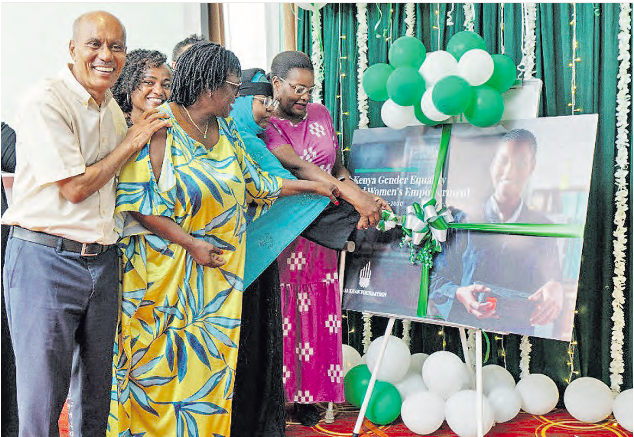
Over 16,000 cases of GBV and femicide recorded in Uasin Gishu
Athletes Agnes Tirop, Rebecca Cheptegei and Damaris Muthee among women killed.
Says they have been facing a lot of discrimination, injustices
In Summary

Thirty-eight per cent of Kenyan women have at some point gone through gender-based violence at the hands of their lovers, an international development agency has said.
The Aga Khan Foundation said this is 11 per cent above the global average of 27 per cent, signaling a dangerous trend that needs to be curtailed.
Foundation’s county gender coordinator Neema Ali said on Monday these are just the known cases because they were reported.
She said there are many more cases that go unreported as community members sweep the issues under the carpet or try to solve the matters that occur in-house.
“This explains the high number of femicide cases in Kenya. Women have been facing a lot of discrimination, injustices, and unfair and intimate partner violence,” Ali said.
“So, even if we are making so many strides in our country, we still have a lot to do.”
In the last three months, more than 100 women have been killed as femicide in the country threatens to get out of hand.
Speaking at the launch of the gender equality and women empowerment strategy 2025-30, Ali said Kilifi, Kwale and Mombasa counties lead in cases of violence against women.
She said an inclusive culture in society is what is needed to end violence.
“Civil society organisations are trying to address the matter but there is a need for more effort from more stakeholders,” Ali said.
The foundation, she said, is committed to ensuring gender mainstreaming is done in all its programmes to elevate women and empower them and their male folk to understand that violence against women is an outdated practice.
The strategy, she said, will ensure policies adhere to gender equality initiatives.
“We are also very keen on ensuring that our staff, programme implementers, the partners that we work with, all have a very gender key-focused lens in their programming regardless of the nature of their programme,” Ali said.
She said AKF cannot work alone as a gender department in ensuring they improve the standards of and address the gender and social barriers that women and young girls face in the country.
“Unless we are able to ensure that all our functions, all levels, and arms of the organisation are able to ensure that gender equality is mainstreamed from the beginning, from the programme designing a level, not as an afterthought,” she said.
“Equality is not enough. We have to ensure equity as well.”
She said inequality begins at the early childhood development stage, thus it is important to ensure gender mainstreaming in the education sector as well.
Daniel Mudibo, an AKF officer, said there is a need to work more with CSOs to involve men more in the fight against GBV.
Mudibo said without including the men, GBV will always be there.
“That is why we work with CSOs to sensitise the community, especially the males through the male champions programme,” he said.
SENSITISE ALL
Mudibo said GBV has to be tackled from all directions to be successful at stopping it.
“If you sensitise the women and forget the male, all strategies will be neutralised and there will be zero work done,” he noted.
Dream Achievers Youth Organisation’s Enos Opiyo said many entities have come up to advocate a stop to the GBV.
He said the government has a big role to play in the fight against GBV but has been lethargic in implementing the policies set to protect women.
Opiyo said organisations have to have in place policies on how to handle cases that emerge from the organisational level.
He said cultures and tradition also play a big role in GBV cases as women are demoted in value in most of African cultures and traditions.
“We have to do away with certain cultural practices that belittle women. In some cultures, women are not supposed to be educated, for instance,” Opiyo said.

Athletes Agnes Tirop, Rebecca Cheptegei and Damaris Muthee among women killed.